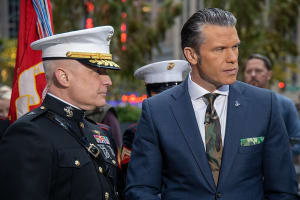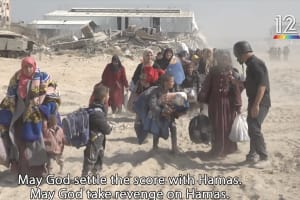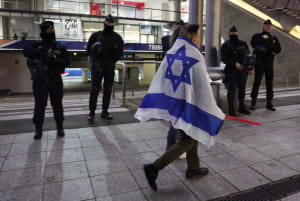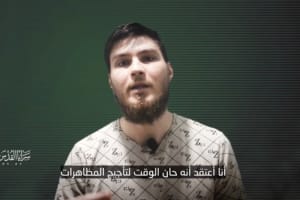Hezbollah attacks against Israel reach new high point with heavy rocket barrages
IDF approves new plans for northern sector and threatens Hezbollah

Attacks against Israel’s northern border reached a new high point on Wednesday, as the Lebanese terror organization Hezbollah launched the largest number of rockets and drones at Israel since it began its almost-daily rocket launches following the Hamas terror group's invasion of Israel on Oct. 7.
The rocket barrage marked a significant escalation in attacks along Israel's northern border."
IDF Chief of Staff Lt.-Gen. Herzi Halevi toured Israel's northern border on Wednesday before holding a situation assessment and approving plans to continue operations in the north.
“The IDF, and within it the Northern Command, are at a very high level of readiness. So far the campaign here has been managed correctly and strictly, and that’s how it should continue. We will not return the residents without security and a sense of security,” Halevi said.
Hezbollah continued firing at Israel throughout the day, which began with a volley of 12 rockets toward IDF outposts near Mount Dov and then launching a barrage of about 18 rockets at the coastal town of Rosh Hanikra.
Hezbollah claimed the salvo targeted an IDF naval base. At least six of the rockets were intercepted by the Iron Dome air defense system, with several others falling in open areas.
Hours later, another huge barrage was launched toward the city of Kiryat Shmona. Hezbollah claimed to have fired 30 rockets, although only 18 reached Israeli territory, according to the local municipality.
Six rockets exploded in the city, damaging houses and infrastructure.
Later in the day, several launches were aimed at Arab al-Aramshe and three drones struck the Mount Dov area.
In his evening briefing, IDF Spokesman Brig.-Gen. Daniel Hagari emphasized that the Israeli army is decisively responding to attacks by Hezbollah by eliminating units while in the act of attacking Israel, and by destroying the group’s infrastructure close to the border.
“Over 150 terrorists were killed there, of which 129, if I'm not mistaken, were Hezbollah terrorists, and Hezbollah is paying a heavy price for this activity – and will pay a heavier price if it continues to do it,” Hagari said.
On Thursday afternoon, the IDF announced it had destroyed “several terrorist infrastructures alongside military sites” with airstrikes in southern Lebanon.
Hagari said the army was committed to reestablishing security for the residents of Israel’s north, “by driving Hezbollah away from the border line so that the residents will feel safe and have confidence that they will return to live in the north – and that will take time.”
Israeli officials have carried out a diplomatic pressure campaign in recent weeks, stressing that Israel insists on the full implementation of UN Resolution 1701, written in 2006, which required Hezbollah to pull back its forces north of the Litani River.
“We are now at a fork in the road: Either Hezbollah backs off from the Israeli border, in line with U.N. Resolution 1701, or we will push it away ourselves,” Eylon Levy, spokesman for the Prime Minister’s office said on Wednesday.
“Hezbollah and its Iranian warlord patrons are dragging Lebanon into a totally unnecessary war – into the war that Hamas started. Our region does not deserve a broader war.”
Hezbollah has gradually escalated its attacks in recent weeks, and especially these last days, after the targeted assassination of Iran's Islamic Revolutionary Guard Corps (IRGC) Brig.-Gen. Razi Mousavi in a suburb of the Syrian capital Damascus.
Iranian leaders threatened Israel with revenge following the death of Mousavi, who was officially in charge of the Iranian-Syrian military alliance.
“Hezbollah’s strategy is to tie up Israeli military resources to hinder the elimination of Hamas in Gaza. Nevertheless, the effectiveness of this strategy is gradually diminishing and approaching its threshold,” said Joe Truzman, a research analyst for the Foundation for Freedom of Democracies (FDD).
“As a result, Hezbollah faces a crucial juncture where it must choose between ceasing its attacks on Israel and relocating its forces north, or having Israel compel this decision upon the group,” Truzman added.

The All Israel News Staff is a team of journalists in Israel.













